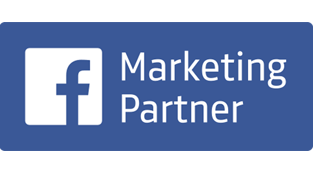Artificial intelligence (AI) is revolutionizing various industries, and the legal sector is no exception. For personal injury law firms, AI offers powerful tools to streamline both legal intake and marketing processes. This comprehensive guide explores how AI can enhance these critical areas, leading to improved efficiency, client satisfaction, and overall firm growth.
The Role of AI in the Legal Industry
What is Artificial Intelligence?
Artificial intelligence refers to the simulation of human intelligence processes by machines, particularly computer systems. These processes include learning (acquiring information and rules for using the information), reasoning (using rules to reach approximate or definite conclusions), and self-correction.
Importance of AI in Legal Practices
AI technologies are transforming the legal industry by automating routine tasks, improving accuracy, and providing valuable insights. For personal injury law firms, AI can significantly enhance legal intake and marketing efforts, making these processes more efficient and effective.
Streamlining Legal Intake with AI
Automating Initial Client Interactions
AI-Powered Chatbots
Chatbots are AI-driven programs that can simulate human conversation. They can handle initial client inquiries, provide information, and collect essential details from potential clients. By automating these interactions, chatbots ensure that clients receive prompt responses, even outside of business hours.
Natural Language Processing (NLP)
NLP enables chatbots to understand and respond to client queries accurately. This technology can interpret client needs, answer frequently asked questions, and route more complex issues to human staff, ensuring efficient and accurate client interactions.
Efficient Data Collection and Management
Intelligent Intake Forms
AI can enhance the design and functionality of online intake forms. Intelligent forms can adapt based on client responses, ensuring that only relevant questions are asked. This reduces client effort and increases the likelihood of form completion.
Automated Data Entry
AI tools can automate the process of entering client information into case management systems. This not only saves time but also reduces the risk of errors associated with manual data entry.
Improving Client Experience
Personalized Communication
AI can analyze client data to personalize communication. For instance, AI can tailor follow-up emails based on the specific needs and preferences of each client, making interactions more relevant and engaging.
Predictive Analytics
Predictive analytics uses historical data to predict future outcomes. In the context of legal intake, AI can analyze patterns in client data to identify which leads are most likely to convert into clients, allowing firms to prioritize their efforts.
Enhancing Legal Marketing with AI
Targeted Advertising Campaigns
AI-Driven Ad Targeting
AI can analyze vast amounts of data to identify the characteristics of potential clients who are most likely to need personal injury services. This allows law firms to create highly targeted advertising campaigns that reach the right audience at the right time.
Dynamic Ad Creative
AI can automatically generate and test different ad creatives to determine which versions perform best. This continuous optimization ensures that marketing campaigns are always using the most effective visuals and messaging.
Content Creation and Optimization
Automated Content Generation
AI tools can assist in creating content by generating articles, blog posts, and social media updates. These tools use algorithms to produce content that is relevant and engaging, helping law firms maintain a consistent online presence.
SEO Optimization
AI can analyze search engine algorithms and optimize content to improve search engine rankings. This includes keyword research, content recommendations, and technical SEO enhancements.

Analyzing Marketing Performance
Advanced Analytics
AI-powered analytics tools can provide deeper insights into marketing performance. These tools can track user behavior, measure the effectiveness of different marketing channels, and identify trends that can inform future marketing strategies.
Sentiment Analysis
Sentiment analysis uses AI to interpret and classify the emotions expressed in text data, such as client reviews and social media comments. This helps law firms understand public perception and adjust their marketing strategies accordingly.
Case Studies of AI in Legal Intake and Marketing
Case Study 1: Improving Intake Efficiency with Chatbots
Background
A mid-sized personal injury law firm implemented AI-powered chatbots to handle initial client inquiries and collect essential information.
Implementation
The firm integrated chatbots on their website and social media platforms. These chatbots were equipped with NLP capabilities to understand and respond to client questions accurately.
Results
- Increased Efficiency: The firm saw a 40% reduction in the time staff spent on initial client interactions.
- Improved Client Satisfaction: Clients appreciated the prompt responses and personalized communication.
- Higher Conversion Rates: The firm experienced a 25% increase in lead conversion rates.
Case Study 2: Enhancing Marketing with AI-Driven Campaigns
Background
A personal injury law firm sought to improve its online marketing efforts and reach a larger audience more effectively.
Implementation
The firm used AI-driven tools to analyze client data and create targeted advertising campaigns. They also leveraged AI to generate and optimize content for their website and social media.
Results
- Better Targeting: The firm’s ads reached more relevant audiences, resulting in a 30% increase in click-through rates.
- Enhanced Content: AI-optimized content led to a 20% improvement in search engine rankings.
- Increased ROI: The firm saw a 35% increase in marketing ROI due to more efficient ad spending and higher engagement rates.
Best Practices for Implementing AI in Legal Intake and Marketing
Start Small and Scale Up
Begin with small AI projects, such as implementing chatbots or using AI for data analysis. As you become more comfortable with the technology, you can scale up and integrate AI into more areas of your practice.
Choose the Right Tools
Select AI tools that are specifically designed for the legal industry. These tools will be better equipped to handle the unique needs and challenges of personal injury law firms.
Train Your Team
Ensure that your team is trained to use AI tools effectively. Provide ongoing training and support to help staff understand how AI can enhance their work and improve client outcomes.
Monitor and Adjust
Regularly monitor the performance of AI tools and make adjustments as needed. Use analytics to track the effectiveness of AI implementations and identify areas for improvement.
Conclusion
Artificial intelligence offers personal injury law firms a powerful way to streamline legal intake and marketing processes. By automating routine tasks, enhancing client interactions, and providing valuable insights, AI can help law firms improve efficiency, increase client satisfaction, and grow their business. Embracing AI technology is not just a competitive advantage—it’s a necessity in today’s fast-paced legal landscape.
Apply for your FREE Discovery Call today! Enhance your firm’s intake and marketing strategies with our expert guidance and cutting-edge AI solutions.
Focused Keywords:
- Artificial Intelligence in Legal Intake
- AI for Legal Marketing
- Personal Injury Law Firm Marketing
- AI Chatbots for Lawyers
- Legal Marketing Automation
- Predictive Analytics for Law Firms
- AI Tools for Personal Injury Lawyers

